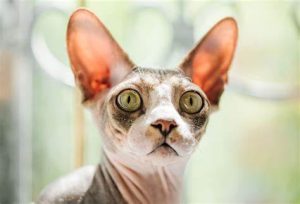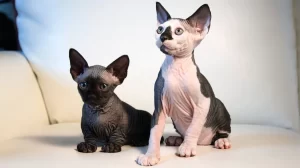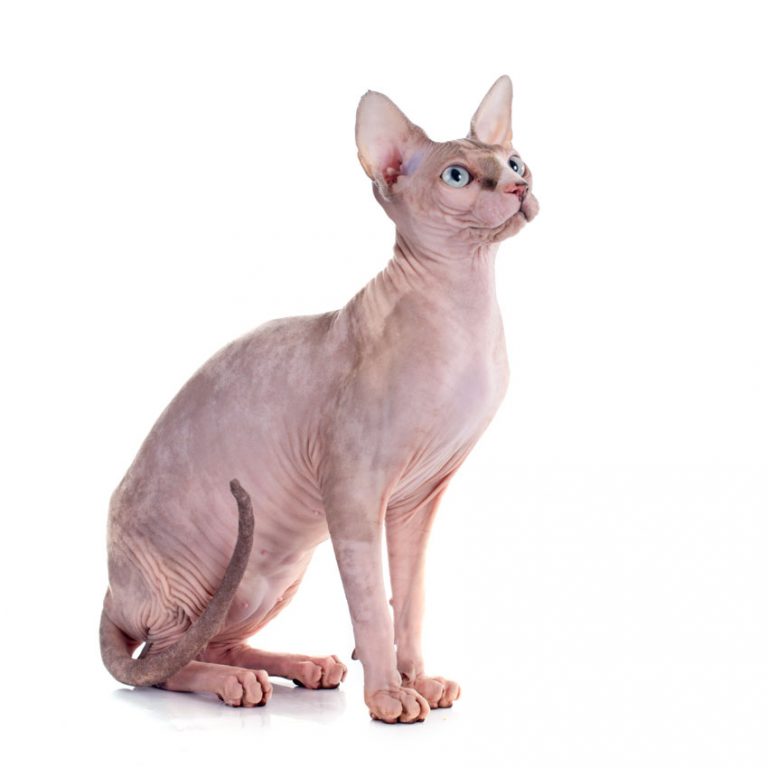Some information about Sphynx Cats Breed
Sphynx cats are a unique and distinctive breed known for their lack of fur, wrinkled skin, large ears, and striking appearance.
Hystory of Sphynx Cat Breed
The history of the Sphynx cat breed is relatively recent compared to many other breeds, originating in the 1960s. Here’s a brief overview of its development:
- Natural Mutation: The Sphynx breed began with a natural genetic mutation. In 1966, in Toronto, Canada, a domestic cat named Elizabeth gave birth to a hairless kitten named Prune. Prune had no fur due to a genetic mutation, making her the progenitor of the Sphynx breed.
- Selective Breeding: Breeders recognized the potential of Prune’s unique appearance and began selectively breeding her descendants to create a breed with consistent traits. The breeding program involved crossing Prune’s offspring with other breeds, including Devon Rex and domestic shorthair cats, to introduce genetic diversity and refine the breed’s characteristics.
- Early Challenges: The early years of Sphynx breeding were challenging. Breeding hairless cats presented unique health concerns, and many kittens did not survive infancy. Additionally, breeders faced skepticism and criticism from some quarters due to concerns about the welfare and health of the cats.
- Recognition: Despite these challenges, dedicated breeders persisted, and the Sphynx breed gained recognition. The breed was officially recognized by cat registries, including The International Cat Association (TICA) and the Cat Fanciers’ Association (CFA), in the 1980s. This recognition helped solidify the breed’s status and promote responsible breeding practices.
- Development and Standardization: Over time, breeders worked to establish a breed standard for the Sphynx, defining the desired traits in terms of appearance, temperament, and health. This standardization helped ensure that Sphynx cats bred according to these guidelines would exhibit consistent characteristics.
- Popularity and Expansion: The Sphynx breed gradually gained popularity among cat enthusiasts attracted to its unique appearance and affectionate personality. Today, Sphynx cats are found in households worldwide and are cherished for their distinctive look, playful nature, and loving temperament.
Despite its relatively short history, the Sphynx breed has made a significant impact on the world of cat breeding, offering a striking and affectionate companion for those who appreciate its unique qualities.

Appearance
Personality
Care

Health
Sphynx cats are generally healthy, but they may be more susceptible to certain health issues than other breeds. Due to their lack of fur, they are prone to sunburn and should be kept indoors or provided with sunscreen if they go outside. They may also be prone to respiratory infections and skin conditions, so regular veterinary check-ups are important.
Origin
The Sphynx cat breed originated in the 1960s when a naturally hairless kitten was born in Toronto, Canada. Breeders began selectively breeding these cats to create the Sphynx breed that we know today. Contrary to popular belief, Sphynx cats are not completely hypoallergenic, as they still produce dander and saliva that can trigger allergies in some people.
Overall, Sphynx cats are unique, affectionate, and energetic companions that can make wonderful pets for the right owner.
Other posts you might be interested in:

